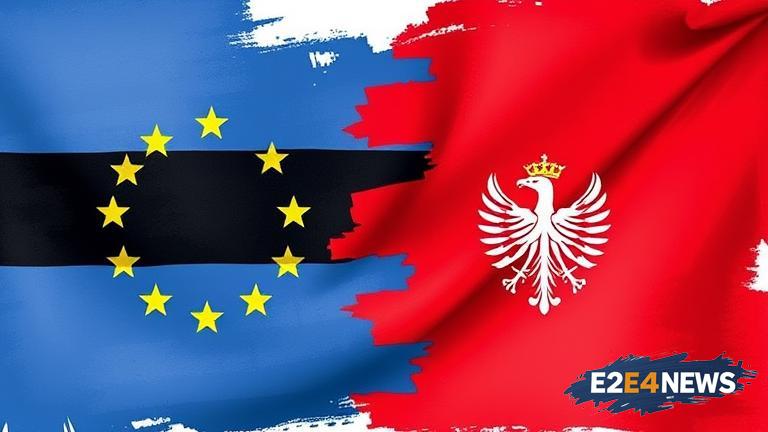The Estonian Foreign Minister has expressed enthusiasm for Montenegro’s accession to the European Union, emphasizing the significant benefits this move will bring to European security. Montenegro’s integration into the EU is seen as a crucial step towards strengthening the region’s stability and promoting cooperation among member states. The Foreign Minister highlighted the importance of Montenegro’s accession in enhancing the EU’s collective defense capabilities and fostering a more unified and secure Europe. This development is expected to have far-reaching implications for the region, promoting economic growth, democratic values, and human rights. The Estonian government has consistently supported Montenegro’s EU aspirations, recognizing the country’s strategic location and its potential to contribute to regional stability. Montenegro’s accession is also seen as a positive step towards promoting European integration and reinforcing the EU’s commitment to the Western Balkans. The Estonian Foreign Minister praised Montenegro’s efforts to meet the EU’s accession criteria, noting the country’s significant progress in areas such as rule of law, judicial reform, and anti-corruption measures. The Minister also emphasized the importance of continued cooperation between Estonia and Montenegro, particularly in areas such as defense, cybersecurity, and economic development. Estonia has been a strong advocate for EU enlargement, recognizing the benefits of a more integrated and secure Europe. The country has also been actively engaged in supporting the EU’s Eastern Partnership program, which aims to promote democratic reforms and economic development in the region. Montenegro’s accession is expected to have a positive impact on the region’s economic development, with increased trade and investment opportunities emerging as a result of the country’s integration into the EU’s single market. The Estonian government has also emphasized the importance of promoting people-to-people contacts and cultural exchange between Estonia and Montenegro, recognizing the value of building strong relationships between the two nations. In addition to its economic benefits, Montenegro’s accession is also expected to promote democratic values and human rights in the region. The Estonian Foreign Minister noted that Montenegro’s integration into the EU will provide a positive example for other countries in the region, demonstrating the benefits of EU membership and the importance of adhering to democratic principles. The Minister also highlighted the significance of Montenegro’s accession in promoting regional stability, particularly in the context of the ongoing conflict in Ukraine. Estonia has been a strong supporter of Ukraine’s sovereignty and territorial integrity, and the country has consistently called for a peaceful resolution to the conflict. Montenegro’s accession is seen as a positive step towards promoting regional stability and reinforcing the EU’s commitment to the Western Balkans. The Estonian government has also emphasized the importance of continued cooperation between the EU and other international organizations, such as NATO, in promoting regional security and stability. In conclusion, Montenegro’s accession to the EU is a significant development that is expected to have far-reaching implications for European security and cooperation. The Estonian Foreign Minister’s enthusiastic welcome of this move reflects the country’s strong commitment to EU enlargement and its recognition of the benefits of a more integrated and secure Europe. As Montenegro continues on its path towards EU membership, Estonia is expected to remain a strong supporter of the country’s accession efforts, recognizing the significant benefits that this move will bring to the region and to Europe as a whole. The Estonian government will likely continue to engage in close cooperation with Montenegro, particularly in areas such as defense, cybersecurity, and economic development. Furthermore, Estonia will likely remain a strong advocate for EU enlargement, recognizing the benefits of a more integrated and secure Europe. The country will also continue to support the EU’s Eastern Partnership program, promoting democratic reforms and economic development in the region. In the coming years, Estonia and Montenegro are expected to strengthen their bilateral relations, with a focus on promoting economic cooperation, cultural exchange, and people-to-people contacts. This will not only benefit the two countries but also contribute to the overall stability and security of the region. Moreover, the Estonian government will likely continue to emphasize the importance of promoting democratic values and human rights in the region, recognizing the significance of these principles in promoting regional stability and security. Overall, Montenegro’s accession to the EU is a positive development that is expected to have significant benefits for European security and cooperation, and Estonia will likely remain a strong supporter of this move in the years to come.
